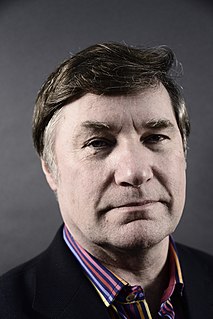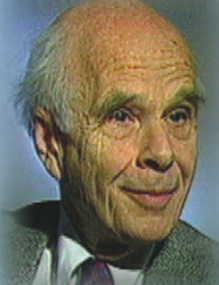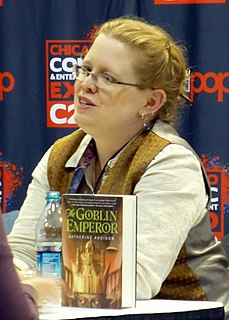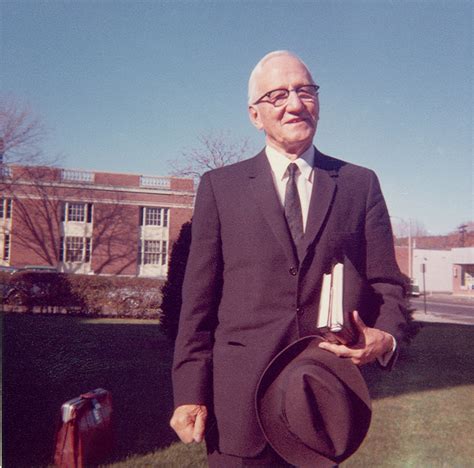A Quote by Edwin Hubbel Chapin
Physically, man is but an atom in space, and a pulsation in time. Spiritually, the entire outward universe receives significance from him, and the scope of his existence stretches beyond the stars.
Related Quotes
Man is slightly nearer to the atom than to the star. ... From his central position man can survey the grandest works of Nature with the astronomer, or the minutest works with the physicist. ... [K]nowledge of the stars leads through the atom; and important knowledge of the atom has been reached through the stars.
Man alone, during his brief existence on this earth, is free to examine, to know, to criticize, and to create. In this freedom lies his superiority over the forces that pervade his outward life. He is that unique organism in terms of matter and energy, space and time, which is urged to conscious purpose. Reason is his characteristic and indistinguishing principle. But man is only man -- and free -- when he considers himself as a total being in whom the unmediated whole of feeling and thought is not severed and who impugns any form of atomization as artificial, mischievous, and predatory.
The whole universe is one. There is only one Self in the universe, only One Existence, and that One Existence, when it passes through the forms of time, space, causation, is called by different names, buddhi, fine matter, gross matter, all mental and physical forms. Everything in the universe is that One, appearing in various forms. When a little part of it comes, as it were, into this network of time, space and causation, it takes forms. Take off the network, and it is all one.
We are beginning to see the entire universe as a holographically interlinked network of energy and information, organically whole and self referential at all scales of its existence. We, and all things in the universe, are non-locally connected with each other and with all other things in ways that are unfettered by the hitherto known limitations of space and time.
Rest enough for the individual man, too much and too soon, and we call it death. But for man, no rest and no ending. He must go on, conquest beyond conquest. First this little planet and all its winds and ways, and then all the laws of mind and matter that restrain him. Then the planets about him, and, at last, out across immensities to the stars. And when he has conquered all the deep space, and all the mysteries of time, still he will be beginning.
The great controversy is ended. Sin and sinners are no more. The entire universe is clean. One pulse of harmony and gladness beats through the vast creation. From Him who created all, flow life and light and gladness, throughout the realms of illimitable space. From the minutest atom to the greatest world, all things, animate and inanimate, in their unshadowed beauty and perfect joy, declare that God is love.
The opponent strikes you on your cheek, and you strike him on the heart by your amazing spiritual audacity in turning the other cheek. You wrest the offensive from him by refusing to take his weapons, by keeping your own, and by striking him in his conscience from a higher level. He hits you physically, and you hit him spiritually.
Man is only a reed, the weakest in nature, but he is a thinking reed. There is no need for the whole universe to take up arms to crush him: a vapour, a drop of water is enough to kill him. but even if the universe were to crush him, man would still be nobler than his slayer, because he knows that he is dying and the advantage the universe has over him. The universe knows none of this.
Amos Vogel was a mentor, a guiding light for me. In his presence, you always rose. But his importance to me is of minor significance. What is significant is that with him an entire epoch ends. The Last Lion has left us.I am still not capable - or rather unwilling - to understand the fact that Amos passed away, because a man like him cannot be dead. His traces are everywhere.
There is, therefore, no difficulty in answering such questions as these. What cause was there why the Universe was placed in such a part of Space? and, Why was the Universe created at such a Time? for, if there be no Space beyond the Universe, it was impossible that it should be created in another place; and if there was no Time before, it was impossible it should be created at another time.
IT is reported of Margaret Fuller that she said she accepted the universe. "Gad, she'd better!" retorted Carlyle. Carlyle himself did not accept the universe in a very whole-hearted manner. Looking up at the midnight stars, he exclaimed: "A sad spectacle! If they be inhabited, what a scope for misery and folly; if they be not inhabited, what a waste of space!"





































